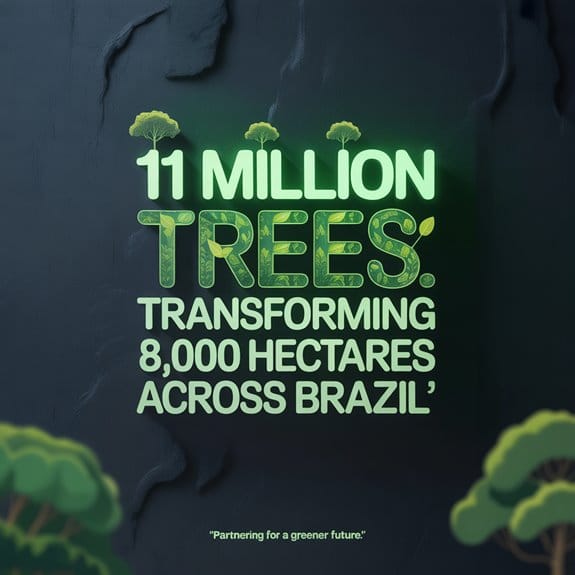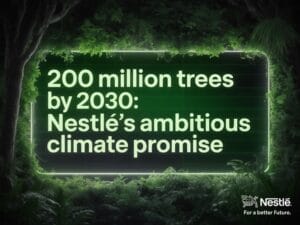Eleven million trees will soon cover 8,000 hectares in Brazil’s Bahia and Pará regions through a partnership between Nestlé, Barry Callebaut, and re.green. The effort aims to restore ecosystems and fight climate change while supporting sustainable farming. This initiative is crucial as coffee-growing regions are increasingly challenged by climate change and shifting weather patterns.
Re.green will plant 3.3 million native Atlantic rainforest trees in Bahia. Barry Callebaut plans to convert 6,000 hectares into cocoa agroforestry systems, mixing cocoa crops with shade trees across Bahia and Pará. Nestlé says the project aligns with its 2050 net-zero emissions target.
The initiative’s environmental benefits include capturing carbon dioxide, enhancing biodiversity, and improving soil and water health. Re.green’s 30-year project could produce 880,000 carbon credits. Project partners will release annual restoration metrics to measure progress against biodiversity and carbon goals. Agroforestry methods help farmers grow cocoa more sustainably while protecting ecosystems long-term.
Experts say restoring degraded land could curb deforestation and climate impacts in regions crucial for global coffee and cocoa supplies. Supply chains for these crops may become more stable.
Nestlé’s Nescafé brand already sources 32% of its coffee from farms using regenerative practices—exceeding its 2025 goal. These methods have cut emissions by 20–40% per kilogram of beans. Barry Callebaut’s shift to agroforestry could reduce risks linked to deforestation laws, like the EU’s new regulations.
Nestlé fully funds re.green’s work and covers 60% of Barry Callebaut’s costs. The companies aim to plant 200 million trees globally by 2030 in key sourcing areas. Partner Olam Food Ingredients (ofi) is restoring 72,000 hectares in Brazil, Ivory Coast, and Nigeria.
Local communities gain jobs in tree planting, farm training, and forest management. Knowledge-sharing on agroforestry could help rural economies thrive without harming ecosystems. Strategic stakeholder collaboration is evident as Nestlé’s Barbara Sapunar and re.green’s Thiago Picolo jointly oversee the project’s alignment with climate and regeneration targets.
Nestlé estimates the Brazil projects will capture 1.5 million tons of CO₂ over three decades. The work reinforces corporate climate pledges while addressing consumer demand for sustainable products.




